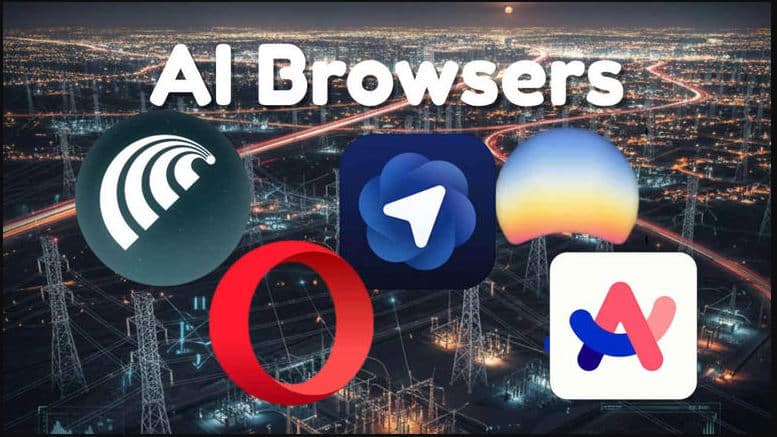AI Tools for Customer Service Chatbots: Transforming the Future of Interaction
In today’s fast-paced digital landscape, customer service has become a critical differentiator for businesses. As consumer expectations evolve, companies are turning to artificial intelligence (AI) to streamline support processes, enhance user experiences, and reduce operational costs. At the forefront of this transformation are AI-powered customer service chatbots, which are redefining how brands engage with their audiences. From 24/7 support to personalized interactions, these tools are not just a trend but a necessity for businesses aiming to stay competitive. This article explores the key features, popular tools, benefits, and challenges of AI chatbots in customer service.
The Rise of AI in Customer Service
Customer service chatbots leverage AI technologies like natural language processing (NLP) and machine learning (ML) to simulate human-like conversations. Unlike traditional rule-based bots, modern AI chatbots can understand context, learn from interactions, and adapt to user needs. The demand for such tools has surged, especially post-pandemic, as businesses prioritize digital-first strategies. According to industry reports, over 80% of businesses now use AI chatbots to some extent, with many seeing significant improvements in efficiency and customer satisfaction.
Key Features of AI Chatbots
-
Natural Language Processing (NLP):
NLP enables chatbots to interpret and respond to human language in a conversational manner. This allows them to handle open-ended questions, understand sarcasm, and even detect emotions, making interactions feel more natural. -
Machine Learning & Self-Learning Capabilities:
AI chatbots improve over time by analyzing past interactions. They can identify patterns, refine responses, and reduce errors without constant manual updates, ensuring continuous enhancement of service quality. -
Integration with CRM Systems:
Advanced chatbots seamlessly connect with customer relationship management (CRM) tools, enabling personalized responses based on user history, preferences, and purchase data. -
Multilingual Support:
Global businesses benefit from chatbots that can communicate in multiple languages, breaking down barriers and catering to diverse audiences. -
Scalability:
AI chatbots handle high volumes of queries simultaneously, making them ideal for businesses experiencing rapid growth or seasonal traffic spikes. -
Analytics & Insights:
These tools provide actionable data on customer behavior, frequently asked questions, and pain points, helping businesses optimize their services and strategies.
Popular AI Chatbot Tools for Customer Service
Several platforms offer robust solutions tailored to different business needs:
-
Dialogflow (Google Cloud):
A user-friendly tool that uses NLP to build conversational interfaces. Suitable for startups and enterprises, it integrates well with Google services and supports multilingual interactions. -
Microsoft Bot Framework:
Leverages Azure’s AI capabilities for creating intelligent bots. Ideal for businesses already using Microsoft ecosystem tools, with strong support for voice and messaging platforms. -
IBM Watson Assistant:
Known for its advanced AI and enterprise-grade solutions, Watson Assistant excels in handling complex queries and is often used in banking and healthcare sectors. -
Salesforce Einstein:
Seamlessly integrated with Salesforce CRM, this tool offers personalized customer interactions and is popular among sales and customer support teams. -
Rasa:
An open-source framework for building custom chatbots. Requires technical expertise but offers flexibility for businesses needing tailored solutions. -
Zendesk Answer Bot & Freshdesk Bots:
These tools are designed for integration with existing helpdesk systems, automating responses to common inquiries while allowing for human handoff.
Benefits of AI Chatbots for Customer Service
-
24/7 Availability:
Chatbots operate round the clock, ensuring customers receive support at any time, which improves satisfaction and loyalty. -
Cost Efficiency:
Automating repetitive tasks reduces the need for large customer service teams, lowering operational costs significantly. -
Faster Response Times:
Instant replies minimize wait times, addressing customer concerns swiftly and preventing frustration. -
Scalability:
They handle thousands of interactions simultaneously, making them perfect for businesses with fluctuating demand. -
Personalization:
By accessing customer data, chatbots can deliver tailored solutions, such as product recommendations or account-specific updates. -
Data-Driven Insights:
Analytics help businesses identify trends, optimize processes, and anticipate customer needs, leading to better strategic decisions.
Challenges & Considerations
While AI chatbots offer numerous advantages, their implementation is not without hurdles:
- Complex Query Handling:
They may struggle with nuanced or highly specific questions, necessitating human intervention for resolution. - Continuous Training:
Regular updates and training are required to keep the chatbot accurate and relevant, especially as customer needs change. - Integration Complexity:
Legacy systems or fragmented workflows can pose challenges in seamless integration with chatbot platforms. - Maintaining Human Touch:
Over-reliance on automation risks alienating customers who prefer human interaction for sensitive or intricate issues. - Data Privacy & Security:
Handling sensitive customer information requires robust security measures to comply with regulations like GDPR.
The Future of AI Chatbots in Customer Service
As AI advances, chatbots are becoming more sophisticated. Innovations in generative AI (e.g., GPT-based models) are enabling more dynamic, context-aware conversations. Future developments may include better emotional intelligence, voice recognition, and integration with augmented reality (AR) or virtual reality (VR) for immersive support. Meanwhile, the shift towards omnichannel support ensures chatbots can operate across websites, apps, social media, and messaging platforms, providing a unified experience.
Conclusion
AI chatbots are revolutionizing customer service by offering efficiency, scalability, and personalization. While challenges like handling complex issues and maintaining privacy remain, their benefits far outweigh the drawbacks when implemented thoughtfully. For businesses, choosing the right tool depends on factors like budget, technical requirements, and integration needs. As AI continues to evolve, chatbots will likely become even more indispensable, blending automation with human-like empathy to create exceptional customer experiences. Embracing these tools is no longer optional—it’s a strategic imperative for future-ready businesses.
By adopting AI chatbots, companies can not only meet modern customer expectations but also unlock new opportunities for innovation and growth in their service operations.







